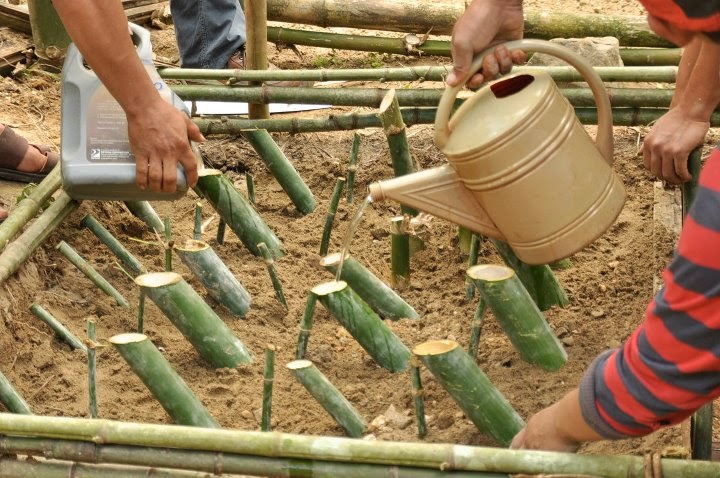
The status of the Philippine bamboo has been upgraded to “high-value crop” following an announcement by the Department of Agriculture.
The high-value crop status enables the bamboo industry to be given support and its production of the crop maximized for sustainability and economic opportunity.
According to the High Value Crops Farmer Guidelines, a high-value crop when traded has competitive returns on investment. These crops are often part of either the regular or niche markets, contributive to the domestic and/or export markets, are highly requested by a foreign market, or yield high values.
Agriculture Secretary Dar said he hopes this new status will allow the bamboo industry in the Philippines to advance in terms of research and economy.
Speaking to the Philippine Bamboo Industry Development Council on February 6, 2020, Secretary Dar said, “We can undertake various interventions that include basic research, processing and value-adding, and budgetary support, complementing the programs and projects of the PBIDC.”
In 2015, the Forest Products Research and Development Institute attributed low productivity an issue to the industry. The Department of Agriculture pronouncement wishes to change that situation and to utilize proper technologies to combat low productivity. Secretary Dar adds that this change would be an economically viable boon to farmers and their families.
“We need to tap the power of technology to mass propagate bamboo. It would be good if the PBIDC can look at opportunities in providing funding support for bamboo tissue culture to address the lack of planting materials needed to rejuvenate the country’s bamboo industry,” Dar said.
Bamboo is a hard woody grass that countinuously grows at a rapid rate. It is a popular wood-substitute globally, as it is a sustainable and sturdy material. Currently, the Philippines is the sixth top exporter of the crop. Contextually, bamboo is an important aspect to the Philippines not just because of cultural importance, but also because it’s a very versatile crop.
There are nearly 60 species of bamboo in the country alone, and they are often utilized in industry for handicrafts, furniture construction, and engineered (or modified) bamboo. They are a feasible and sks in public schools and other government facilities be made of bamboo to support the industry.
One of the more famous uses of bamboo in the country is the Las Piñas Bamboo Organ, which was featured in a Google Doodle last November 24, 2019. The bamboo organ will again be showcased in the 45th edition of the International Bamboo Organ Festival this February 2020.
Betis Church in Pampanga launched the Philippines’ 2nd Bamboo Organ during Simbang Gabi in December 2019.
Bamboo Musical Instruments (BMI) are also getting much-needed support from DOST as the agency has initiated BMI material enhancement in collaboration with UP, PNU, DOST scientists to aid Bukidnon’s Talaandig tribe musical heritage preservation. Loudbasstard has also championed the use of bamboo in its sound amplifier.
Negros’ Wala Usik school canteen uses bamboo mugs and coconut bowls for more environmentally friendly practice.
Top Gear also spotlighted Philippine-made electric bamboo motorcycles while Bambike has pioneered bicycles for tourists in Intramuros.
A Pinoy bamboo housing project also won £50K in the Cities For Our Future competition.
SEND CHEERS in the comments below to the Philippine bamboo industry for being given due recognition as a high value crop!
Want to know how to be a Proud Pinoy? Like, Follow, Subscribe to GoodNewsPilipinas.com and our socials Facebook, Twitter, Instagram, Good News Pilipinas! TV on YouTube, for new story notifications and e-mail newsletters for updates on more Filipino Pride stories.










